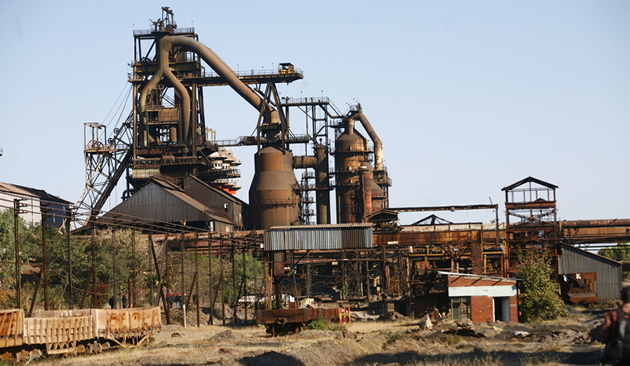EDITORIAL COMMENT: Time Zisco deal was concluded

THE announcement five years ago that Zimbabwe had finally secured a partner to resuscitate the Zimbabwe Iron and Steel Company after several false starts, was met with great joy and hope, not only by the Redcliff community but by the nation at large given the strategic importance of the steelmaker in the economy.
The US$750 million that would be injected by Essar Africa Holdings would have a significant impact on the economy, at a time Zimbabwe was thirsting for foreign direct investment and seeking initiatives to preserve jobs while expanding employment opportunities.
However, the excitement has almost fizzled out as one reason after another is being put forward as causing the delay to resuscitate the former steel giant.
We appreciate the seemingly haste agreement was a sign of commitment by Government and Essar to reviving the firm, closed in 2008 due to financial constraints.
Certainly, the resuscitation of Zisco, renamed NewZim Steel, would have a significant impact on Government’s efforts to turnaround the economy and drive industrialisation, a key component of sustainable growth.
By nature, multimillion- dollar deals take time and effort to put together let alone reach a stage where they are implemented, especially where there are many legacy issues that parties must first agree in terms of how they should be resolved.
But the economy does not have the luxury of half a decade of negotiations before anything tangible is in place.
It becomes even more intriguing when new stories keep coming up, further delaying the finalisation of the deal.
This leaves many with fears that there is more to the issue than what we are being made to believe.
The latest of such details, confirmed by Industry and Commerce Minister Mike Bimha, are reports that the deal has failed to take off due to a US$200 million domestic debt by Zisco, which keeps ballooning with each passing day.
According to the report we carried in the Herald Business this week, the investor needs assurance that Government it will settle part of the debt, proportionate to its equity in the company, as failure to do so poses a threat of potential litigation against Essar in future.
This sounds quite logical but the lethargy in this instance raises more questions than answers.
It is not enough to say that a few loose ends remain to be sorted out at central Government level after so many years of discussions and when, in the meantime, families of former Zisco employees are starving; failing to afford basics such as education and health.
Others have simply resigned to fate.
A number of Government ministers have repeatedly reassured us that much ground has been covered behind the scenes towards revival of the mothballed former steel manufacturing company, but on the ground there is no life at the NewZim Steel.
This state of affairs is untenable. It is time that serious and decisive action was taken to revive the potentially viable company. All those involved in the deal need to be sensitive to the negative impact that further delays will have on the economy. Thousands of lives are hanging in there, hoping that Blast Furnace Number Four will soon start firing again.
It would be such a bad precedent were this deal to take much longer before implementation. This country has sealed multi-million dollar deals with Russia and China which should start rolling. These should never be left to go the NewZim Steel route.
The fact that a mere US$400 million in foreign direct investment came to Zimbabwe last year when regional peers such as Mozambique realised as much as US$2 billion, should jerk everyone into action. We need to examine the opportunity costs of our actions or inactions in this instance.
Revival of Zisco, as per Essar’s submission, would result in thousands of jobs, significant exports of steel products, industrialisation, downstream benefits to other local industries, infrastructure development (power, road and rail) and increased demand for other inputs such as coal.
These are sufficient reasons to expedite the process. The economy needs to progress at a more active pace if we are to realise high Gross Domestic Product growth we anticipate under the Zimbabwe Agenda for Sustainable Socio-Economic Transformation (Zim-Asset).









Comments